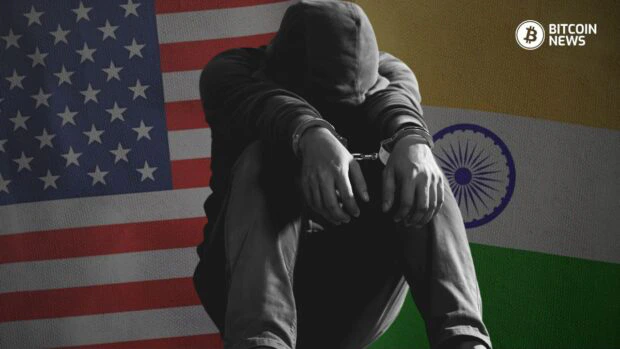India’s Enforcement Directorate (ED) has made a significant breakthrough in a joint case with the United States involving alleged international drug trafficking, recovering 268 bitcoin worth $17 million from a resident of Haldwani, Uttarakhand.
Parvinder Singh, who was arrested last week after the ED raided his residence and other locations in Haldwani for over 20 hours, is suspected of being involved in an international drug ring under investigation by US authorities.
Singh’s arrest and subsequent interrogation, in collaboration with US authorities, is an impressive instance of international cooperation in unraveling a drug racket. Notably, the agency has obtained seven days’ custody of Parvinder Singh.
According to a senior ED official, two brothers, Banmeet Singh and Parvinder Singh, and their co-accused utilized vendor marketing sites on the dark web and a network of distributors to sell drugs in the United States, the United Kingdom, and other European countries.
The accused then laundered the proceeds through digital asset transactions, specifically Bitcoin.
The investigation revealed that the Singh brothers operated under the name ‘The Singh Organization.’ They used various dark web markets, such as ‘SILK ROAD 1’, ‘AlphaBay’, and ‘Hansa’, along with clear web advertisements, to facilitate drug sales. In a recent report, the agency writes:
“This group established a network of narcotics and controlled-substance distributors and distribution cells. Their transactions predominantly involved receiving payment in the form of cryptocurrency in exchange for drugs.”
Banmeet and Parvinder Singh: An International Drug Ring
The US probe into the Singh Organization’s activities discovered that the accused received around 8,488 bitcoin using common monikers on dark web markets.
By tracing withdrawals from these markets and examining email correspondences with customers, US authorities unveiled the extent of the alleged drug trafficking operation.
The ED stated that Parvinder Singh has agreed to surrender his income obtained from the online sale of illegal drugs. Previously, on April 26, searches were conducted at four locations, resulting in the seizure of digital devices and other evidence.
Meanwhile, Parvinder’s brother, Banmeet Singh, is currently serving a sentence in America. He was arrested in London in April 2019 following a request from the United States.
He was extradited to the United States in March 2023. On January 26, he pleaded guilty to charges of conspiracy to possess controlled substances with intent to distribute, and conspiracy to commit money laundering.
The use of Bitcoin in illicit activities has raised concerns among regulators and policymakers worldwide.
While digital assets offer certain advantages, such as anonymity and ease of cross-border transactions, officials are worried they also pose significant risks in terms of money laundering, terrorism financing, and other illegal activities.
In response, regulatory bodies have been ramping up efforts to monitor and regulate BTC transactions.
It is worth mentioning that recent reports show use of Bitcoin in illicit transactions has been on a rapid decline, with stablecoins gaining popularity. Also, a recent report by Brian Nelson, U.S. Treasury’s Undersecretary, shows that use of bitcoin for illicit transactions is “minimal.”
As the investigation into the Singh Organization continues, the Indian government is likely to scrutinize digital asset transactions and dark web activities more closely.
Notably, this comes at a crucial time as authorities await the implementation of the Cryptocurrency and Regulation of Official Digital Currency Bill, recently introduced in the Lok Sabha.
The bill aims to establish a regulatory framework for the issuance of digital currency by the Reserve Bank of India (RBI).










